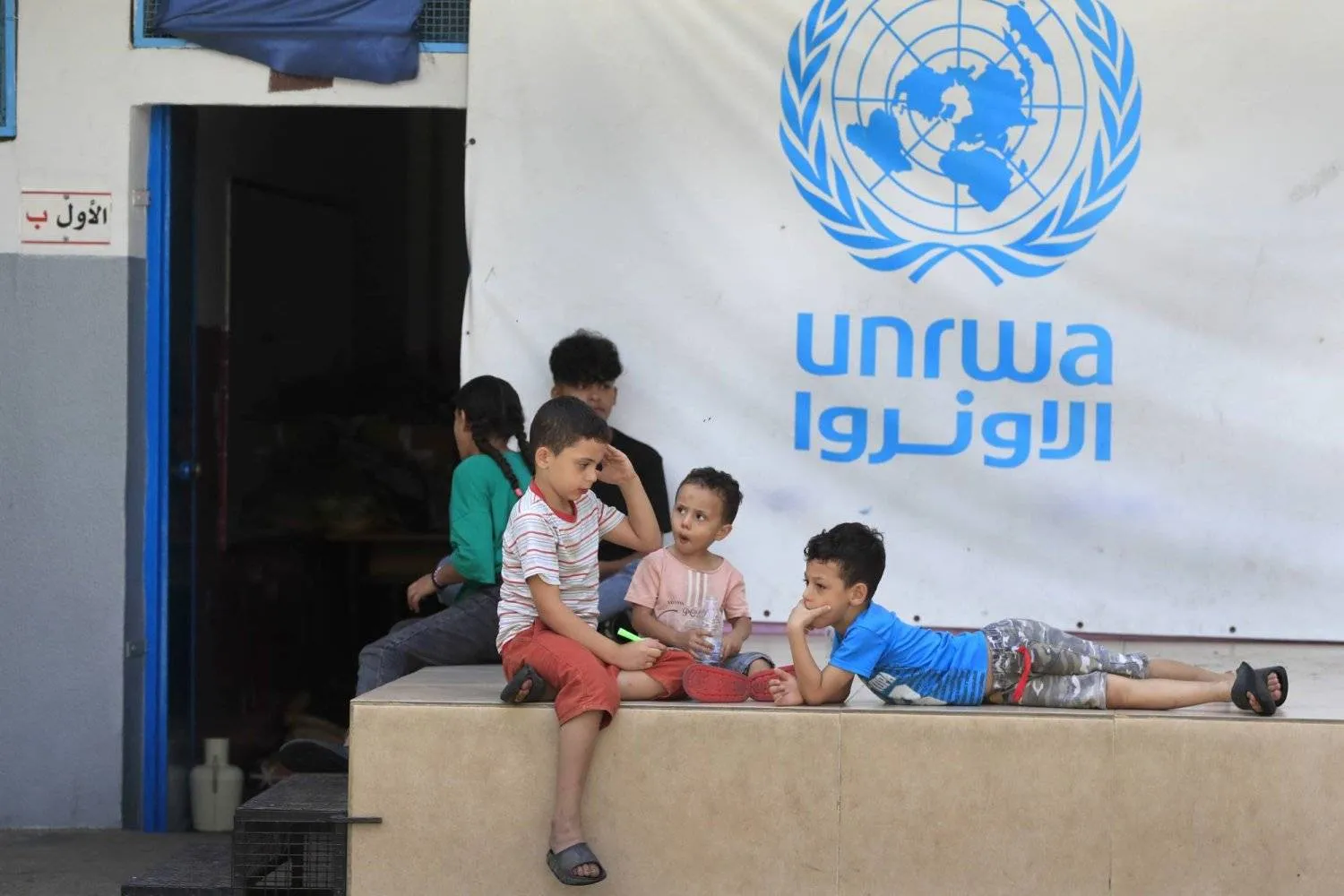The head of the UN agency caring for Palestinian refugees said Wednesday that newly passed Israeli laws effectively banning its activities in Israel will leave a vacuum that will cost more lives and create further instability in Gaza and the West Bank.
Philippe Lazzarini, the commissioner-general of the United Nations Relief and Works Agency, or UNRWA, told The Associated Press in an exclusive interview — the first since the laws were passed — that the legislation is "ultimately against the Palestinians themselves,” effectively denying them a functioning provider of lifesaving services, education and health care.
UNRWA has been the main agency procuring and distributing aid in the Gaza Strip, where almost the entire population of around 2.3 million Palestinians relies on the agency for survival amid Israel's nearly 13-month-old war with the Hamas group.
Tens of thousands of displaced Palestinians are sheltering in UNRWA-run schools. Other aid groups say the agency's strong, decades-old infrastructure across Gaza is irreplaceable.
Israel alleges that Hamas and other militants have infiltrated UNRWA, using its facilities and taking aid — claims for which it has provided little evidence. The laws, passed by parliament this week, sever all ties with UNRWA and ban its operations in Israel.
And since the agency's operations in Gaza and the West Bank must go through Israeli authorities, the laws threaten to close its activities there as well. The laws are expected to come into effect in three months.
If the Israeli decision is implemented “this would be a total disaster, it is like throwing (out) the baby with the water,” Lazzarini told the AP, speaking in the Saudi capital, Riyadh, where he is attending a conference to discuss the Mideast conflict.
“This would create a vacuum. It would also feed more instability in the West Bank and Gaza,” he said. “Having UNRWA ending its activities within the three months would also mean more people will die in Gaza.”
He said the agency is looking for “creative ways to keep our operation going." He appealed for support from the UN General Assembly and donors to keep providing services and called on Israel to rescind the decision or extend the three-month grace period. He said Israel has not officially communicated with the agency following the adoption of the laws.
For decades, UNRWA has operated networks of schools, medical facilities and other services around Gaza and the West Bank — as well as in neighboring Lebanon, Syria and Jordan. In Gaza especially, it plays a major role in maintaining social services and the economy, as the territory's largest single employer and the source of education and health care for much of the population.
The laws threaten to shut down all those operations, impacting the education and welfare of hundreds of thousands of children well into the future, he said.
“We have today 1 in 2 persons in Gaza below the age of 18, among them 650,000 girls and boys living in the rubble, deeply traumatized at the age of primary and secondary school,” he said. “Getting rid of UNRWA is also a way to tell these children that you will have no future. We are just sacrificing your education. Education is the only thing which has never, ever been taken away from the Palestinians.”
UNRWA was established to help the estimated 700,000 Palestinians who fled or were driven out of what is now Israel during the 1948 war surrounding Israel’s creation. It now offers support to the refugees and their descendants, who number some 6 million around the region.
Lazzarini said the Israeli laws are the “culmination of years of attack against the agency.” He said "the objective is to strip the Palestinian from refugee status.”
International law gives Palestinian refugees and their descendants the right to return to their homes. Israel has refused to allow their return, saying it would end the Jewish majority in the country. Israel has said the refugees should be taken in by their host countries, and officials often argue that UNRWA's services keep Palestinians' hopes for return alive.
In a letter to the UN, Lazzarini said the Israeli laws and campaign against the agency “will not terminate the refugee status of the Palestinians, which exists independently of UNRWA’s services, but will severely harm their lives and future.”
Israel claims hundreds of Palestinian militants work for UNRWA, without providing evidence, and that more than a dozen employees took part in Hamas’ Oct. 7, 2023 attack on Israel.
The UN has fired nine staffers after internal investigations found they may have participated in the attack. UNRWA has nearly 30,000 staff around the region, including 13,000 in Gaza, most of them Palestinians. Israel also says Hamas fighters operate in UNRWA schools and other facilities in Gaza — and has hit many of them with airstrikes.
UNRWA denies knowingly aiding armed groups and says it acts quickly to purge any suspected militants from its ranks.
Lazzarini said Israel has not responded to inquiries from UNRWA for details about other allegations, including that the agency's premises are used by militant groups.. With the continued fighting, the agency has been unable to verify the claims, he said and called for an independent investigation.
At least 237 UNRWA staff have been killed in the war in Gaza, a toll among UN staff not seen in any other conflict. Over 200 UNRWA facilities have been damaged or destroyed, killing more than 560 people sheltering there.
Lazzarini spoke on the sidelines of the conference by the Global Alliance for a Two-State Solution, a Saudi government-created initiative attended by foreign ministers from Arab, Muslim, African and European countries.
“If we want to be successful in any future political transition, we need an agency like UNRWA taking care of education and the primary health of the Palestinian refugees” until there is a viable functioning state or administration to do so, he said.









